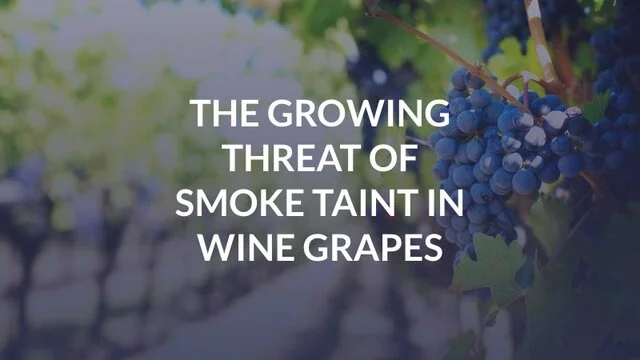
As wildfires intensify across the western United States, vineyard owners and winemakers are facing a growing and costly threat: smoke taint. This condition, caused by exposure to wildfire smoke, can devastate an entire grape harvest, damage a winery’s reputation, and result in substantial financial losses.
Singleton Schreiber represents individuals and businesses impacted by wildfire-related damage, including vineyard owners and wineries facing smoke taint losses. If your business has experienced harm due to wildfire smoke or fire, legal options may be available.
What Is Smoke Taint?
Smoke taint occurs when volatile phenolic compounds in wildfire smoke cling to grape skins and bind with sugars in the fruit. These compounds, when released during the fermentation process, impart undesirable aromas and flavors typically described as ashy, smoky, or burnt. In many cases, the resulting wine becomes unpalatable and unsellable.
Red wine grapes are especially vulnerable. Because red wines are fermented with their skins, any compounds lodged there are incorporated into the final product, making the taint even more pronounced. This can affect not just a single barrel but an entire vintage, leading to devastating losses for growers and winemakers alike.
How Smoke Exposure During The Ripening Increases the Risk of Smoke Taint
The risk of smoke taint increases dramatically during veraison, the point in the grape-growing season when the fruit begins to ripen. During veraison, grapes soften, change color, and accumulate sugars, making them far more susceptible to absorbing harmful compounds from the air.
In the US, veraison typically begins in late July and continues through August, right when wildfire activity often peaks in the Pacific Northwest and California. Just a few hours of dense smoke during this period can impact the flavor and marketability of a crop, even if the grapes appear healthy on the outside.
Long-Term Consequences for Wineries and Vineyards
The financial impact of smoke taint can be enormous. Growers may be forced to abandon entire harvests, pour out fermented wine, or drastically lower their prices. Complicating matters, the extent of smoke taint damage often isn’t known until months after exposure, sometimes only when fermentation is complete.
Vineyard owners and wineries might also suffer:
- Lost contracts with distributors or retailers
- Devaluation of estate-grown brands
- Business interruption due to production halts
- Increased costs for lab testing, quality control, and mitigation efforts
Legal Options for Fire and Smoke-Related Agricultural Losses
At Singleton Schreiber, we’ve seen firsthand how wildfires can bring devastating consequences to farms and vineyards. Wineries and agricultural businesses that suffer losses from fire or smoke exposure may have grounds for legal action against the parties responsible.
We help clients pursue compensation for:
- Crop loss from smoke taint or fire
- Property damage to vineyards, equipment, and facilities
- Business interruption and lost profits
- Costs of mitigation or testing
- Loss of future income from damaged vines or reputation
If a utility company, government agency, or third party’s negligence contributed to the wildfire that harmed your business, we can investigate the cause and fight for the recovery you deserve.
To explore potential legal remedies for wildfire-related losses, including smoke taint and property damage, reach out to Singleton Schreiber. Our team of wildfire attorneys can evaluate your situation and discuss next steps in a confidential consultation.
- Partner
Dan Fruchter is a partner at Singleton Schreiber’s Spokane office, focused on consumer and financial fraud, environmental protection, personal injury, fire litigation, public entity, and civil rights law. Mr. Fruchter brings ...

